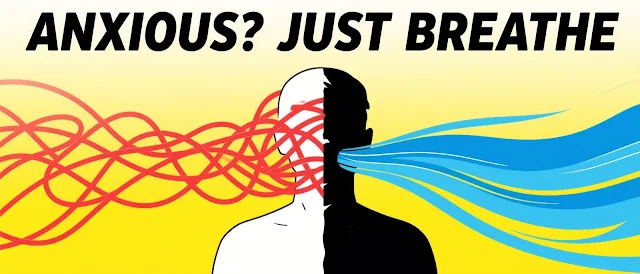In our fast-paced world, breathing exercises, also known as breathwork, are a simple yet incredibly powerful tool for managing your physical and mental health. The way you breathe directly impacts your nervous system and stress levels, making this a scientifically proven method to manage stress effectively. By learning to control your breath through specific breathing exercises, you can unlock profound benefits, from immediate calm to long-term resilience. This guide will walk you through the most effective breathing exercises to help you reduce stress, manage anxiety, and improve your overall quality of life.
Essential Breathing Exercises for Daily Practice
1. Diaphragmatic Breathing (Belly Breathing)
How to Practice This Breathing Exercise: Lie on your back or sit comfortably. Place one hand on your chest and the other on your belly. Inhale slowly through your nose for 4 seconds, focusing on making your belly rise. This ensures you are using your diaphragm. Exhale slowly through your mouth or nose, feeling your belly fall. Consistent practice of this mindful breathing can significantly calm your mind.
2. Box Breathing (The 4-4-4-4 Technique)
How to Practice This Breathing Exercise: Inhale: Slowly breathe in through your nose for a count of four. Hold: Hold your breath for a count of four. Exhale: Slowly breathe out through your mouth for a count of four. Hold: Hold your breath again for a count of four. Repeat the cycle for several minutes.
3. The 4-7-8 Breathing Technique
How to Practice This Breathing Exercise: Exhale completely through your mouth, making a whoosh sound. Close your mouth and inhale quietly through your nose for a count of four. Hold your breath for a count of seven. Exhale completely through your mouth for a count of eight.
Box Breathing vs. 4-7-8: Which Breathing Exercise is Right for You?
Scientific Benefits: How Breathing Exercises Impact Your Brain and Body
Immediate Stress and Anxiety Reduction: Deep breathing exercises activate your body's relaxation response, lowering cortisol levels. Improved Focus and Concentration: This is a natural way to improve focus by calming mental chatter. Lower Heart Rate and Blood Pressure: Regular practice helps regulate your cardiovascular system. Better Sleep: Calming breathing patterns prepare your body and mind for a deeper, more restorative sleep.



